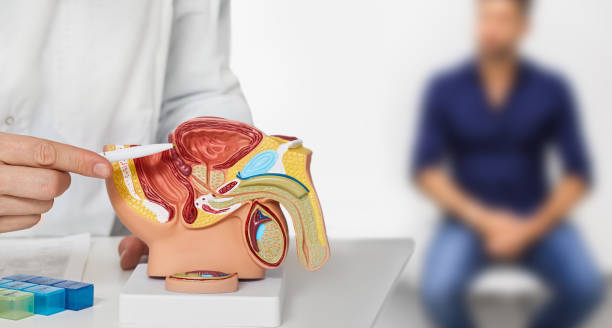Male Infertility Treatment in Punjab
What is Male Infertility?
Failure to conceive might connect to the infertility of the male. Let us see the common forms of male infertility:
Asthenospermia (Low Sperm Motility)
It is the name given to the condition in which the sperms are less motile than the normal. Less than 50 % of sperm motility is known as Oligo-asthenia. The condition in which the sperms are immobile is known as asthenospermia. Male infertility treatment in Punjab is readily available. Male infertility treatment performs as per the causes of the condition. Apart from the sperm motility issues, the couples may also face infertility if the sperm are found to be dead, this condition is known as necrozoospermia.
Causes
There are various causes of low sperm motility
The deficit of sperm-producing hormones
This may occur due to the deficiency of the hypothalamus and pituitary gland. Many syndromes like Moon-Beidl syndrome Prader-Willi syndrome, Frohlich syndrome, Klinefelter syndrome, and Noonan syndrome may cause it.
Testicular disorders
- Hypogonadism
- Problems in the chromosomal structure
- Defects in the synthesis of androgen
- Consumption of Drugs (cytotoxic drugs, ketoconazole, cimetidine, spironolactone).
- Partial obstruction in the flow of sperms from the testis to the penile opening. This condition is also known as obstructive oligospermia.
- Varicocele: It is the condition in which the scrotal vein dilates which causes an increase in the testicular temperature and decreased sperm motility.
- Autoimmunity -It means the presence of an anti-sperm antibody. These bind with the sperm and make them less motile, immotile, or dead.
- Undescended testicle (cryptorchidism): Sometimes the testicles do not descend from the abdomen to the lower part of the scrotum. This leads to increased temperatures in the scrotum, which leads to low sperm production.
Other conditions like Mosaic Klinefelter’s syndrome or mumps may lead to the condition. Partial Spermatogenic arrest, chromosomal abnormality, or alcohol use can also cause the condition.
Diagnosis
History & Physical Examinations:
- Male hormone profile check: All the male hormone tests conduct. These hormones control testicular development and functions including normal sperm Production. The tests include L.H., F.S.H., Testosterones, prolactin, thyroid test, & other relevant hormone tests depending on history & examinations.
- USG or Doppler study of scrotum & testis
- Antisperm antibody
- Semen culture sensitivity
- Semen fructose
- Immunobead test
- Sperm Function Test
- Genetic Studies
- Human Sperm-Zona Pellucida Pentration test
- Human Sperm-Zona Pellucida Binding Ratio
- FNAC Testis
- Egg penetration test
- Molecular genetic studies
- Sperm Function Tests
This test analyses the ability of the sperm to fertilize the egg. These tests perform very rarely.
Treatment
Treatment of male infertility takes by the causes detected. It contains the correction of the causes.
Treatment of Hormone deficiencies: If the hormones are the basis of the problem, then their activity is corrected through various therapies. It usually starts showing results in three months times.
Gonadotropin Therapy: Gonadotropins are natural stimulators of sperm production. With this therapy, the sperm-producing cells stimulate the testis. The Gonadotropins stimulate the cells to produce sperm with normal motility.
Gonadotropin-releasing hormone (Gn-RH) analogs8) Growth hormone therapy gives in a case where somatropin deficiency is the cause.
Free Radical Scavengers: If the antioxidants in the testis are causing the condition, then these drugs come in handy in scavenging the free radicals, thereby increasing sperm production and motility.
Antisperm antibody: Treatment undertakes by using intrauterine insemination, steroid therapy, and intra-cytoplasmic sperm injection (ICSI).
Surgery: Surgery may perform according to the cause of the condition. Varicocele or blockage of the track between the testis and the penis tip may correct by it. Endocrine tumours are corrected by it.
Intra-uterine insemination: IUI involves the selection of motile sperm and transfers to the uterine cavity of the female partner.
Test tube baby or IVF involves the technique of ICSI and embryo transfer to the uterus of the woman.
Book an Appointment
[contact-form-7 id="4479"]


